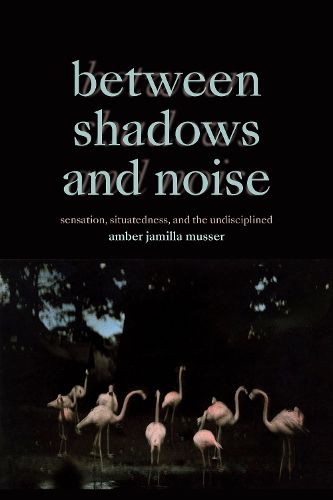Readings Newsletter
Become a Readings Member to make your shopping experience even easier.
Sign in or sign up for free!
You’re not far away from qualifying for FREE standard shipping within Australia
You’ve qualified for FREE standard shipping within Australia
The cart is loading…






In Between Shadows and Noise Amber Jamilla Musser theorizes sensation as a Black feminist method for aesthetic interpretation and criticism that uses the knowledges held by the body to access the unrepresentable. Thinking through blackness, empire, and colonialism, Musser examines art works ranging from Ming Smith's Flamingo Fandago, Jordan Peele's Us, and Katherine Dunham's Shango to Samita Sinha's This Ember State, Titus Kaphar's A Pillow for Fragile Fictions, and Teresita Fernandez's Puerto Rico Burned #6. She engages with these works from an embodied situatedness to grapple with the questions and sensations of racialization and difference that these works produce. Throughout, Musser rethinks how we consider the relationship between race, representation, and politics by dwelling in those spaces and concepts that elude Western norms of representation, objectivity, and logic. In so doing, she explores ways of being and knowing that exceed overdetermined parameters while offering a blueprint for sensing, imagining, and living otherwise.
$9.00 standard shipping within Australia
FREE standard shipping within Australia for orders over $100.00
Express & International shipping calculated at checkout
In Between Shadows and Noise Amber Jamilla Musser theorizes sensation as a Black feminist method for aesthetic interpretation and criticism that uses the knowledges held by the body to access the unrepresentable. Thinking through blackness, empire, and colonialism, Musser examines art works ranging from Ming Smith's Flamingo Fandago, Jordan Peele's Us, and Katherine Dunham's Shango to Samita Sinha's This Ember State, Titus Kaphar's A Pillow for Fragile Fictions, and Teresita Fernandez's Puerto Rico Burned #6. She engages with these works from an embodied situatedness to grapple with the questions and sensations of racialization and difference that these works produce. Throughout, Musser rethinks how we consider the relationship between race, representation, and politics by dwelling in those spaces and concepts that elude Western norms of representation, objectivity, and logic. In so doing, she explores ways of being and knowing that exceed overdetermined parameters while offering a blueprint for sensing, imagining, and living otherwise.